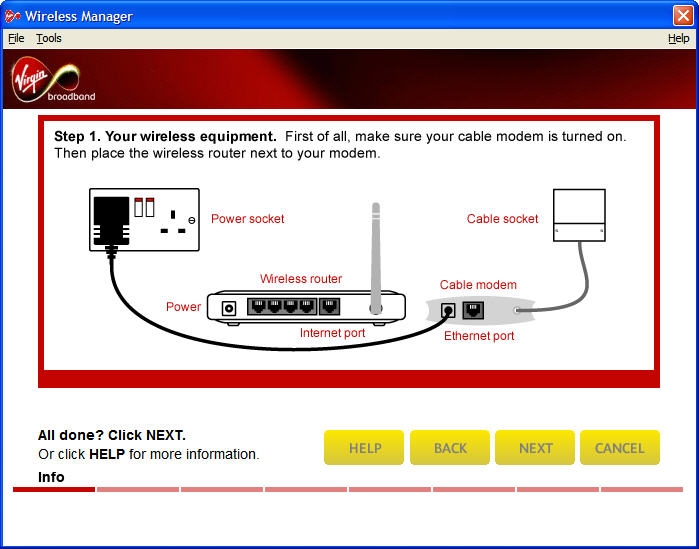Virgin offers idiot-proof Wi-Fi routers
Plus, offers tips on wireless security to customers

Virgin Media is offering free (plus p&p), bespoke and ‘idiot-proof’ wireless routers to its customers as of today, with existing ‘XL’ and ‘L’ package customers able to request them immediately.
Howard Watson, chief technology officer at Virgin Media, told us: "Wireless routers can be complicated to set-up and therefore potentially vulnerable to attack. When considering a solution for our customers we wanted to ensure our broadband users had the highest security available, whilst maintaining the most user-friendly set-up process.
"We think the product we've chosen, alongside our handy tips, will give internet users peace of mind and allow them to enjoy the freedom of wireless in safety."
Secure, free, easy
Many Wi-Fi users still don’t realise that a wireless network can be broken into, in just a few minutes, by working out default passwords set by ISPs.
Hence Virgin Media also reminded wireless internet users that "their personal details or documents could be at risk if their wireless security is not up to scratch".
And with that in mind, the company sent us this handy checklist to help you protect yourself when using wireless:
Get daily insight, inspiration and deals in your inbox
Sign up for breaking news, reviews, opinion, top tech deals, and more.
- Wireless security relies on passwords. Don't rely on the passwords an ISP might suggest - these are often printed on the router to help you remember but can be extremely easy to decode or 'crack' by working out the formula the ISP used to create the password. When choosing a password, the longer it is the more secure it is - there are many more combinations of letters, making decoding much tougher. A longer password is also harder to guess, thus making it harder for someone to invade your privacy.
- Most routers allow you to control who can connect to your network by letting you specify the actual computers or devices - like games consoles - that you use. This is sometimes called a 'whitelist'. Log in to your router and check your router manual and options. This works by only allowing those devices in the whitelist to connect to your wireless network, protecting against unauthorised access.
- Wireless routers let you choose from a number of levels of security, like WEP (Wired Equivalent Privacy) or WPA (Wi-Fi Protected Access) - check what security system your wireless network is using and if possible, secure your network using the newer WPA security methods rather than WEP. WPA remains secure, whereas the older, more common WEP has been 'cracked' and provides little resistance to a neighbourhood hacker that decides to snoop.
- For even more security, you can 'hide' your wireless router - once you've set-up your wireless devices, including games consoles or computers, you can disable the name broadcast feature meaning others won't be able to see your network. The network still works, as you have already set-up your computers to work with it, but others won't be able to see it, even if they hunt for it.
- Finally, if you're worried that your network may have been broken into, check the connection logs on your router. Wireless routers store a list of all the machines that are currently connected through the wireless and in some cases lists machines that have connected in the past - if you notice computers in the list you don't recognise, consider improving your wireless security.
The Virgin Media wireless router is available now, free for 'XL' and 'L' broadband customers (though a nominal courier charge will be levied) or for a £40 one-off fee for customers on the 'M' broadband package. Customers can also purchase wireless cards for their PCs for £20.
The TechRadar hive mind. The Megazord. The Voltron. When our powers combine, we become 'TECHRADAR STAFF'. You'll usually see this author name when the entire team has collaborated on a project or an article, whether that's a run-down ranking of our favorite Marvel films, or a round-up of all the coolest things we've collectively seen at annual tech shows like CES and MWC. We are one.